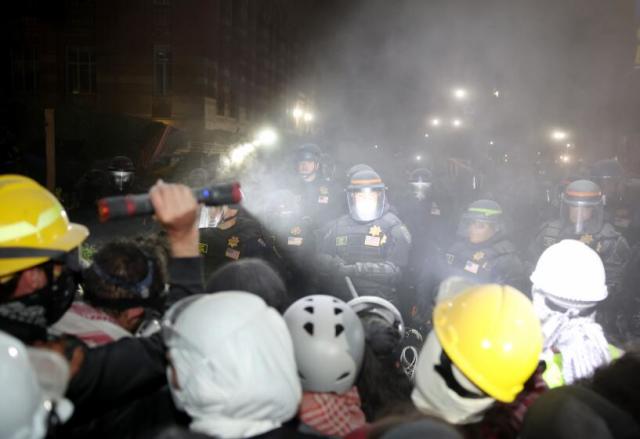
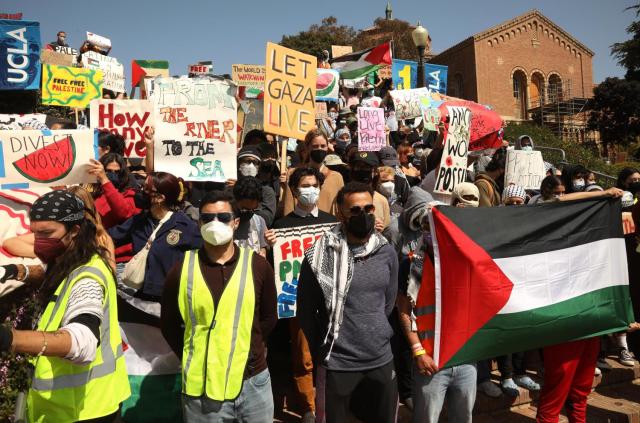
Police moved into the pro-Palestinian encampment at UCLA on Thursday morning, dismantling many of the tents, pushing out most of the protesters and making numerous arrests.
The operation caps two days of upheaval that began when UCLA declared the camp “unlawful” and continued when a mob attacked the camp Tuesday night, with police taking hours to stop the violence.
On Thursday morning, officers wearing body armor, helmets and face shields methodically pulled apart the barricade as protesters tried to hold together the assemblage of plywood and metal fencing. Flares arced overhead, igniting with piercing blasts, and smoke filled the air from fire extinguishers that demonstrators sprayed at the police.Police launched the flares over the encampment. Officers watched the scene from the high windows of Royce Hall, infuriating protesters who shone lights in their eyes and challenged them to come down.
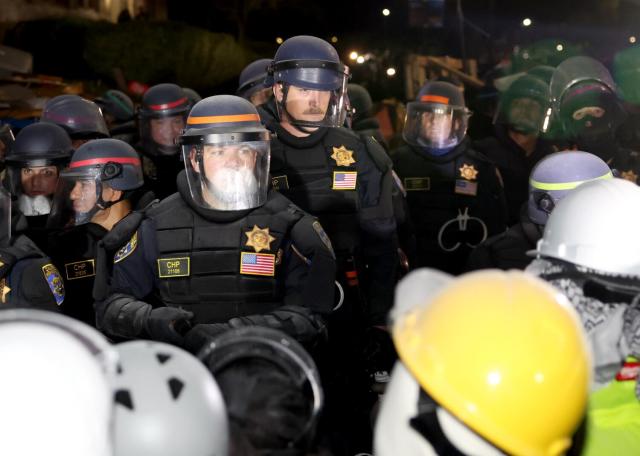
There were several fronts of the operation, with police using flash-bang type devices that echoed across campus and dismantling tents.
They were able to move protesters out of Royce Hall after a series of tense scuffles. It is unclear how many people were taken into custody. But some protesters appeared to leave the scene on their own.
But many remained at the scene and refused to leave.
Earlier in the morning, about 15 LAPD officers entered through a makeshift barricade near the school’s Tonga steps around 1:30 a.m. before protesters pushed them back, according to a UCLA student who witnessed the incident.
The student, who declined to be named, said the demonstrators who remained early Thursday morning in the encampment were prepared to be arrested.
“The people who have been here consistently are sleep deprived, but people here are ready to defend the camp,” she said.
UCLA police repeatedly announced over loudspeakers that protesters should clear the area “immediately” and that those who failed to do so would be subject to arrest.
In recent weeks, UCLA, like other universities across the country, has emerged as a hotbed of pro-Palestinian activism.
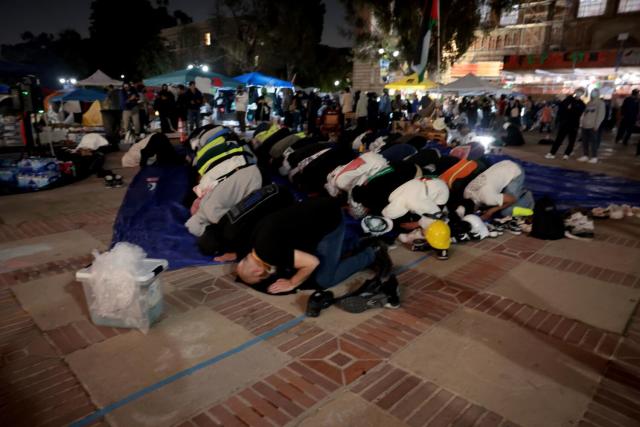
Students, faculty and staff have erected makeshift camps and demanded an end to Israel’s war in the Gaza Strip and that their universities divest from companies that sell weapons or services to Israel.
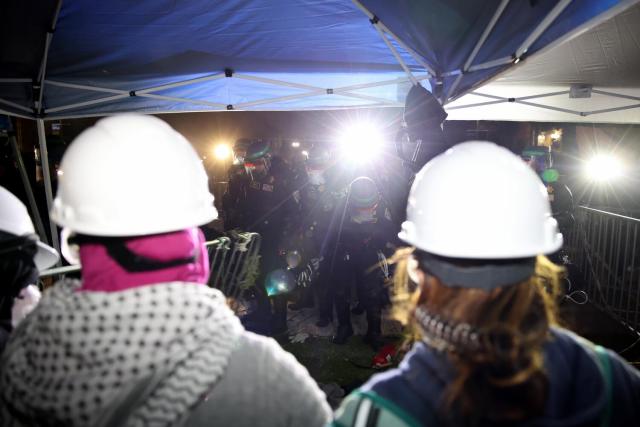
Citing “sufficient confusion” surrounding the events, UC President Michael V. Drake said he was ordering an independent review of the university’s actions and the response by law enforcement.
As police began arriving in significant numbers early Wednesday evening, students lined up arm in arm in an effort to prevent law enforcement from reaching the encampment.
Down the hill from the tents, more than two dozen vehicles from the Los Angeles County Sheriff’s Department lined up. Officers in riot gear faced the students.
They won’t arrest you before giving a dispersal order,” one student called out to the crowd.
“If you don’t want to be arrested, don’t stand in the front,” another student organizer shouted.
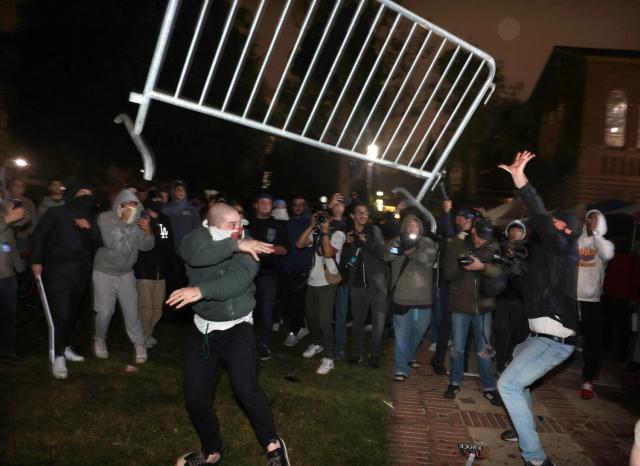
Another, who apparently wanted to end genocide without imperiling her future employment prospects, said she was “trying to get arrested but not a felony.”
Meanwhile, in the road across from the encampment, dozens of pro-Palestinian protesters flowed into the driving lanes in front of Dickson Plaza chanting, “From the river to the sea, Palestine will be free.”
Others held a sign apparently expanding the goals of the protest: “From Palestine to Mexico, all the walls got to go.”
Matt Barreto, a professor of Chicano studies and political science, stood under a blue-and-gold banner that read “UCLA Faculty and Staff, We Stand with Our Students.”
Barreto said he was one of about 30 faculty and staff members who were in the encampment and willing to be arrested alongside students.
“Our job is to stand up for their 1st Amendment rights, their rights on their own campus. We’re not trying to speak for the students,” he said. “We’re just here to support them and make sure no harm comes to them, especially after last night.
“We’re going to stand here all night holding this banner,” he added.
The faculty’s decision to stay in the encampment comes hours after it circulated a letter to Chancellor Gene Block with about 360 signatures demanding no police action or disciplinary action be taken against students.



